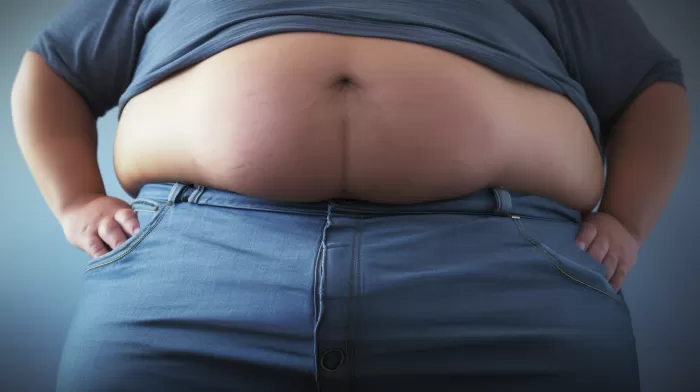Waistline fat is notorious for being bad for your heart; however, recent research has also discovered a link between the location of your body fat and your risk of developing cancer. This is concerning considering the worldwide obesity epidemic. Identifying high-risk individuals is crucial to allow for targeted preventive and therapeutic measures, according to Kathryn A. Britton, M.D., an instructor of medicine at Brigham and Women’s Hospital in Boston. So, as your stomach starts to bulge, your cancer risk may also increase.
CT Scans Reveal Truth About Fat
Britton and fellow researchers used CT scans to examine and find direct associations between specific fat deposits and disease risk. In a study testing over 3,000 people, they monitored their health for seven years and discovered that those with abdominal fat had more heart attacks and tumors compared to others whose fat was deposited in other parts of their body.
Visceral Fat – The Real Culprit
In this context, it’s essential to understand the difference between subcutaneous fat and visceral fat. Subcutaneous fat lies directly under the skin, while visceral fat is found deeper, surrounding your organs. The main concern is visceral fat – it tends to release more inflammatory substances, which cause problems like insulin resistance and chronic inflammation, known to be linked to cancer.
The Fat and Cancer Connection
Several types of cancer have been linked with visceral fat, including colorectal, pancreatic, esophageal, and breast cancers, among others. According to a study published in Cancer Prevention Research, post-menopausal women with visceral fat showed an increased risk of developing breast cancer. The study suggested that excess body fat leads to an imbalanced hormone system, leading to this increased risk for breast cancer.
For men, a study in the International Journal of Cancer showed that those with a higher amount of visceral fat could be at a higher risk for colorectal cancer. Moreover, an increased risk of pancreatic and esophageal cancers was linked to visceral fat in research published in Cancer Epidemiology, Biomarkers & Prevention.
The Science Behind It
Researchers believe that the process starts with the inflammation caused by visceral fat. This inflammation is linked to the production and release of cytokines like Interleukin-6, which is known to promote insulin resistance, making your body less efficient in controlling blood sugar levels. Elevated insulin levels are associated with an increased risk of colon cancer.
Additionally, due to their proximity to your organs, visceral fat cells can directly affect organ function. For example, they can produce hormones that disrupt liver function, leading to an increase in ‘bad cholesterol’ and higher amounts of insulin in the bloodstream. This can result in further inflammation and an increased risk of cancer.
Reducing Your Risk
The good news is that you can reduce your visceral fat levels and, in turn, lower your risk of developing cancer. One of the most effective ways to do this is through regular exercise. A study in the Journal of Applied Physiology found that regular aerobic exercise had a significant impact on reducing visceral fat, even when there were no changes to the individual’s diet.
A combination of aerobic and resistance training is ideal for maximum benefits. A balanced diet is also essential to reducing visceral fat. Focus on whole foods, fruits, vegetables, lean proteins, and healthy fats. Additionally, cutting back on sugar, refined grains, and processed foods helps prevent increased insulin levels, reducing fat storage.
The Importance of Sleep
Your sleep habits can also significantly impact your visceral fat levels. Poor quality sleep can make your body work less efficiently and cause an increase in cortisol production – a hormone that leads to fat storage, particularly in the abdominal area. Ensuring you get seven to eight hours of good quality sleep each night is essential to help fight visceral fat accumulation.
The Bottom Line
It’s worth acknowledging that the fat around your waistline not only affects your heart but also increases your cancer risk. By making some lifestyle changes, such as focusing on a balanced diet, incorporating regular exercise, and ensuring adequate sleep, you can reduce your visceral fat levels and lower your risk of developing cancer. Remember, prevention is always better than cure.



